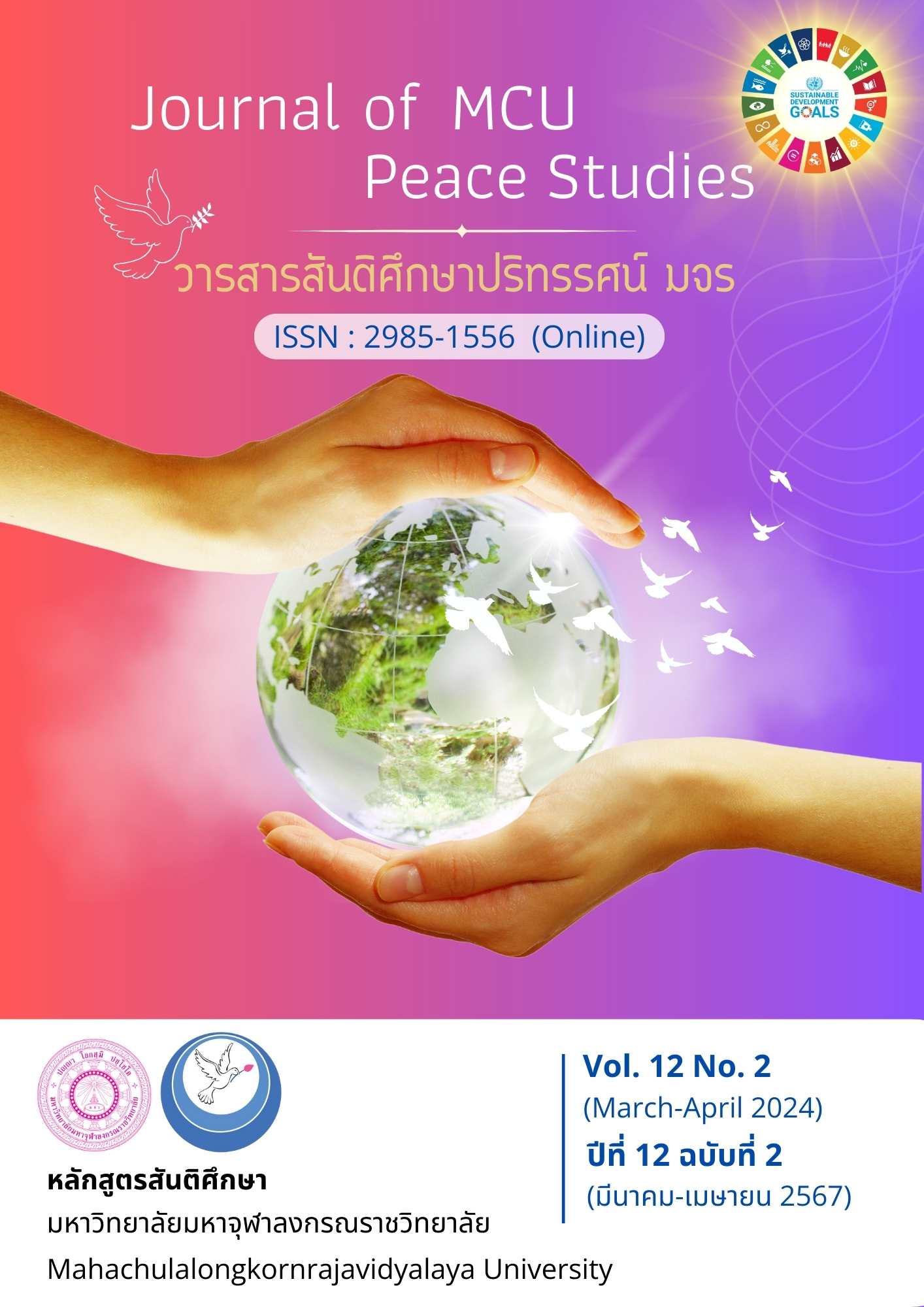Guidelines to Faith Enhancement in Buddhism by Buddhist Peaceful Means of Y-Generation Buddhists
Main Article Content
Abstract
This research article consisted of the following two objectives: 1) to explore the context, problems, causes, and factors influencing faith in Buddhism of the Y-generation Buddhists, as well as the Buddhist peaceful means conductive to enhancing faith of Buddhists; and 2) to present the guidelines for enhancing faith in Buddhism based on Buddhist peaceful means of the Y-generation Buddhists. The study used a qualitative research approach to collect data through a field study and in-depth interviews with 9 Buddhists of the Y-generation who had faith in Buddhism and have the role of spreading knowledge about Buddhism. The obtained data were analyzed by inductive method.
From the study, it was found that the context, problems, and factors that drive Y-generation Buddhists to lose interest in religion and focus more on external assets are as follows: 1) Modern technology enables instant access to information and a consumerism that values materialism over spiritual values; 2) Buddhists believe in miracles rather than pursuing wisdom; 3) News about monks in various media influence people's faith; and 4) Faith is a personal matter, and there is no dogma requiring the study of Buddhist teachings. The Buddhist peaceful means conducive to enhancing faith include Ovādapāṭimokkha (the fundamental teaching), which is universal basis, but Buddhists of the Y-generation are unable to comprehend it completely or properly to implement it for their own benefit and inspire faith. The guidelines for increasing faith for the Y-generation Buddhists are as follows: 1) Leading a modern way of life without chasing after defilements; 2) Presenting contemporary teachings and comprehending modern language; 3) Adjusting the image of the Sangha and making the teachings something that can be practiced on a daily basis; 4) Connecting modern subjects to the Dhamma; 5) Pointing out the concrete outcomes of following the teachings; 6) Using principles and reasons based on democracy; 7) Focusing on key principles rather than rituals; and 8) Emphasizing the power of people who have faith. The body of knowledge acquired from the study is known as 'FIPFI,' which is a significant factor in enhancing faith, while the key method for enhancing faith is known as 'B-S-H,'.
Article Details

This work is licensed under a Creative Commons Attribution-NonCommercial-NoDerivatives 4.0 International License.
Views and opinions expressed in the articles published by The Journal of MCU Peace Studies, are of responsibility by such authors but not the editors and do not necessarily reflect those of the editors.
References
Ajjutamanus, W. (2022). Non-religion People in England Is Increasing. So How Is Thailand? Retrieved January 5, 2023, from https://www.bbc.com/thai/articles/clwgdenqlvpo
Kamnerdsiri, Th. (2022). Is It Wrong to have Non-religion? Retrieved January 5, 2023, from https://theactive.net/read/non-religious/
Phra Prasan Jayābhirato (Aramvanich), Khammuangsaen, B., & Phramaha Phocana Suvaco. (2021). Ovādapātimokkha and the Propagation of Buddhism. Journal of Philosophical Vision, 26(2), 216-229.
Phramaha Khwanchai Kittimatee. (2017). Human Beings Need Religion or Religion Needs a Critical Study on Faith and Problem in Theravada Buddhism. Journal of Buddhist Studies Vanam Dongrak, 4(1), 99-106.
Phramaha Ty Issaradhammo (Dhammakij). (2021). A Process of Faith Enhancement of Young Buddhist through Peaceful Innovative Tourism. (Doctoral Dissertation). Graduate School: Mahachulalongkornrajvidhayalaya University. Ayutthaya.
Tapscott, D. (2009). Grown Up Digital: How the Net Generation Is Changing Your World. New York: McGraw Hill.
Waritt, W., Yamcharoen, N., Sudthiluck, V., & Phramedhavinaiyaios. (2017). A Study of Current Communication Pattern of Buddhism to the New Generation in Thailand. Journal of Yanasangvorn Research Institute, 8(1), 87-94.


